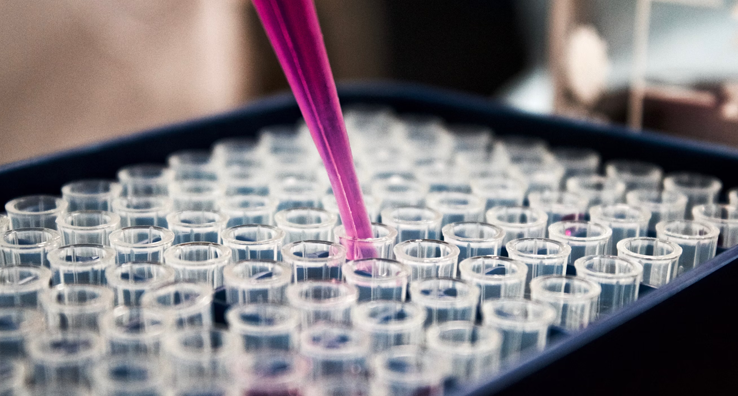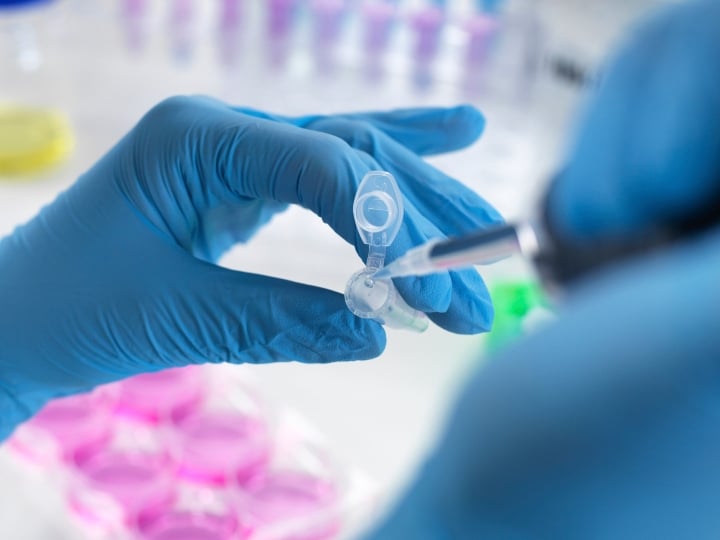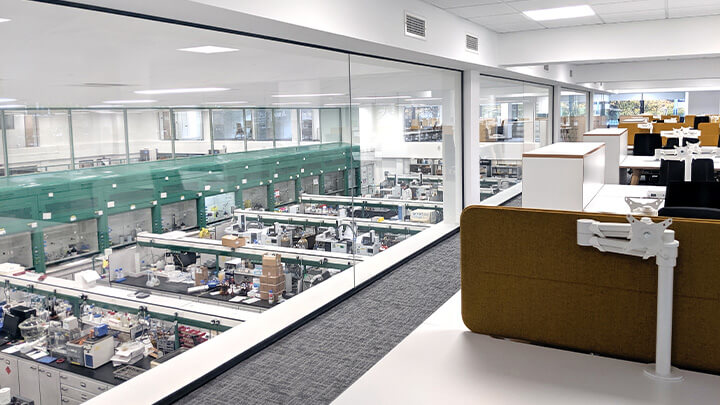Supporting in vitro diagnostic device and reagent development or CE-IVD application/certification through analysis and testing services to address product quality control and stability
The critical characteristics of in vitro diagnostic devices (IVDs) include stability for each analyte, performance evaluation including precision, specificity and sensitivity of the kit, the ability to meet specifications for the shelf life and quality of the IVD critical components or constituents. In vitro diagnostic devices (IVDs) include medical diagnostic and accessories used to perform tests on clinical samples, such as blood, urine and tissue to help detect infection, diagnose a medical condition, prevent disease or monitor the efficacy of a therapeutic. In some disease areas, patients are potentially better served by drugs that are selected via data driven by in vitro diagnostic tests. Examples of the IVD market include immunochemistry, infectious diseases, molecular diagnostics, blood donor screening, hematology, hemostasis, and point-of-care testing.
Our biotechnology, chemical analysis and materials chemistry experts provide product testing, quality control analysis and troubleshooting to help to accelerate your product development process and support the critical stages of approval and CE-IVD application/certification.
Quality of IVD Critical Components or Reagents
Many IVD reagents can be biologic in nature (produced typically using bacteria). These reagents are required to be of the highest quality to ensure accuracy, specificity, and sensitivity of the diagnostic to minimise the risk of false-positive/negatives. Our biotechnology experts provide a full range of testing to ensure the quality, consistency, identity, purity and stability of biologic reagents including enzymes, antibodies, proteins or media to help you to reduce risks associated with the quality assurance of diagnostics or reagents.
IVD Stability Testing
The aim of stability studies for an in vitro diagnostic reagent is to determine the ability to maintain performance characteristics over a defined time interval and to determine the duration over which their products remain suitable for their intended use, under defined conditions of storage and handling. Since the stability of the IVD cannot be directly assessed through accuracy, performance attributes or customer testing; it is the responsibility of the manufacturer to evaluate the performance of the product by identifying critical factors affecting the stability. Intertek's stability teams can work with you to define these critical factors and design then implement a stability plan, protocol and conduct real-time stability studies, accelerated stability studies or in-use stability studies.
IVD Polymer, Plastic and Materials Expertise
Our materials and polymer science experts can help you to ensure the quality of any polymer/plastics materials, components or packaging through quality control testing (mechanical, chemical, physical testing, migration or extractables/leachables studies or component/reagent compatibility). We can also help resolve contamination, production quality issues or failure-in-service. Our expertise includes polymer chemical, mechanical or thermal analysis, ASTM and ISO testing for raw material validation, surface morphology and adhesion studies, rheology, microscopy, chemical imaging, fracture and failure investigation of materials, contamination analysis and control auditing, metallurgy, corrosion and chemical resistance.
Bringing quality and safety to life, our scientists are ready to support your IVD development and CE-IVD application so that your products can drive invaluable data to support ever better patient healthcare.
IVD Support Services:
- Characterisation of Biologic Active Species
- Reagent or Product Quality Control testing
- Reagent and Device Stability Studies
- Biomarkers Assays
- Extractables and Leachables Analysis
- Scientific Support Services
- Contaminant resolution
- Medical Device Materials Testing
- Manufacturing Crisis and Rapid Response for Medical Devices
Pharmaceutical News & Events
- PRESS RELEASE: Lab expansion to enhance capabilities in inhaled biologics drug development
- PRESS RELEASE: Intertek partners with CrystecPharma to advance formulation science and accelerate development for dry powder inhalers
- NEW! Blog: Optimising Quality in Pharma Supply Chains
- Determination of Particles in Pharmaceuticals - Article
- Discover our Audit Live Tool for direct access to our scheduled audits
- Extractables/Leachables Lab Tour - Request access
- Medical Device Extractables & Leachables Studies
- Glycosylation Analytical Approaches for Antibody Therapeutics
- Rapid Determination of Low/Trace Level Benzene in Pharmaceutical Excipients and Finished Products

COVID-19 VACCINE OR THERAPEUTIC TESTING & DEVELOPMENT SUPPORT
IMMEDIATE QUESTION? Ask our experts now
FACTSHEET: COVID-19 Vaccine or Therapeutic Testing & Development Outsourcing
ARTICLE: Repurposing Vaccines for Intranasal Development
WEBINAR: Quality Control Strategy for Vaccine Development
WEBINAR: Repurposing Drugs for Inhaled Delivery
eBOOK: Contingency Outsourcing Solutions


